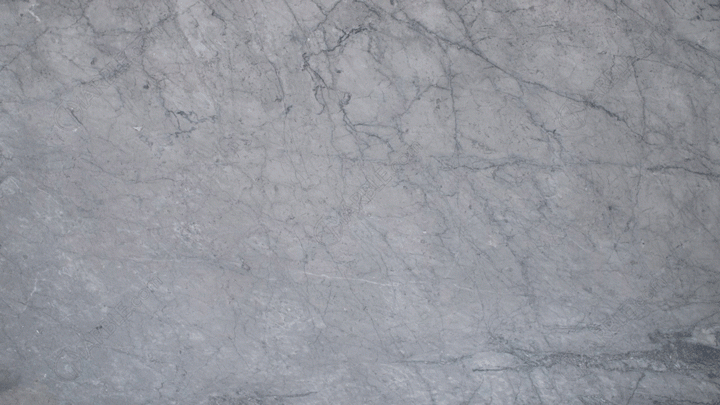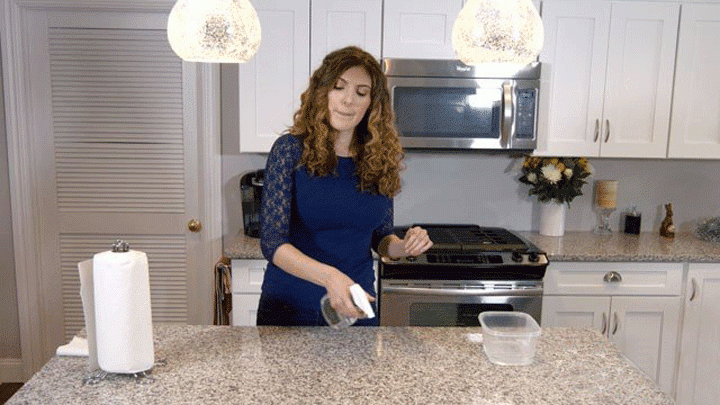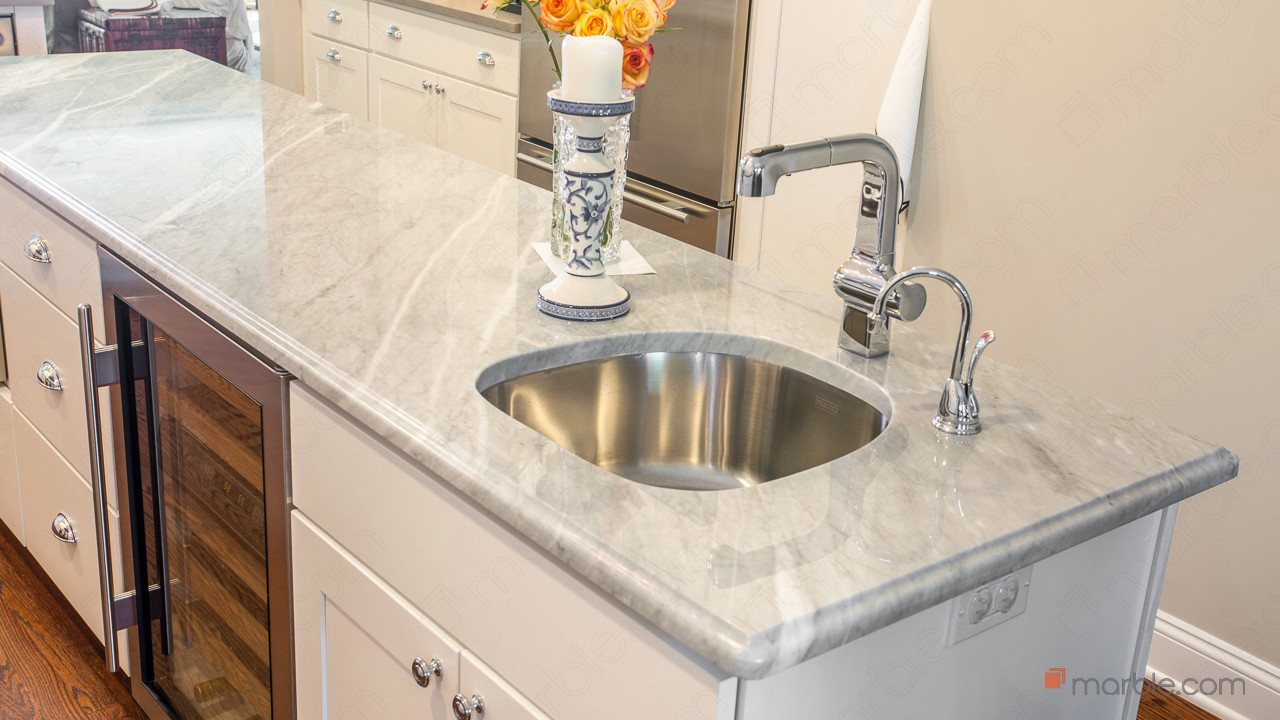
Table of Contents
Marble is one of the finest materials produced by the earth. Many homeowners desire to incorporate this wonderful natural stone into their homes in the form of countertops, vanity tops, backsplashes and various other surfaces. No matter where you install it, marble will look incredible.
When purchasing marble, you will have many different colors and styles to choose from. In addition to this, you will also have options when it comes to the finish of the stone. The two most common finishes you will find are honed and polished. This guide will give you information about what each option is and may help you decide which is the right fit for your home.
[get_quote]
What is the Difference Between Honed and Polished Marble?
Honed marble is marble that has not gone through the polishing process. This results in the stone having a matte appearance, rather than the distinctive shine of polished marble. Many homeowners choose honed marble because of its natural look. A honed marble countertop or other surface will not be as reflective as one that is polished.
On the other hand, polished marble refers to marble that has undergone the polishing process. Polishing makes the stone appear shiny and reflective. Polished marble will emphasize the coloring and veins present in the natural stone.
How Do You Know if Honed or Polished is Better for Your Home?
The true answer to this question is that it will ultimately be a matter of your opinion. That said, the following analysis of each option can help lead you to your decision.
Stains, scratches and etches are three of the most common problems associated with marble. Below is a comparison of how marble with both finish options handle the issues.
| Honed | Polished | |
|---|---|---|
| Staining | If properly sealed, stains should not be an issue with honed marble. This is not to say that stains will never occur, but an adequate seal will lessen the likelihood that stains will be a problem. | If your polished marble is properly sealed, it should not have issues with staining. Note that just because the stone is stain resistant does not mean it is totally stain proof. Stains can still occur, although the chances are significantly decreased with a proper seal. |
| Scratching | Scratches leave behind dull marks on your marble. Because of this, honed marble may be the better choice if you are concerned about scratches. The surface already has a matte appearance, so scratches can be hidden easier than they can be with polished marble. | If you are concerned about scratching, polished marble may not be an ideal fit for your home. While exercising caution can prevent scratches, any that do occur will dull the appearance of your marble. |
| Etching | Etches can occur if you leave spills sitting on your marble for too long. An etch will appear as a dull spot on the surface of your marble countertop or other installation. Exercise as much caution as you can around your honed marble. | Etching can negatively impact your polished marble. You do not want to have dull spots undermine the beautiful shine of the stone. Because of this, you will want to be careful to avoid spills. |
If you have a marble surface, such as a marble countertop, that is in a high-traffic area, honed marble may be more appealing to you. Because it has a matte finish, it will be able to hide any imperfections such as scratches and etches better than polished marble can.
[get_quote]
How Can You Best Protect Your Marble?
Whether it is honed or finished, you will want to keep your marble in great shape for years to come. Doing so will not require any sort of extensive labor, but rather a few key steps you can take. To start, you should always make sure your marble, honed or polished, is properly sealed. Sealing will help prevent liquid and stains from working their way down into the pores of the stone. You will generally need to re-seal your marble about once every few months. Keeping up on cleaning is always a good idea for any stone as well. Lastly, you will want to be as cautious as possible around your marble, especially if it is in a high-traffic area like a kitchen. Try to avoid any spills and clean up any that do occur as soon as they happen.
Whether you install honed or polished marble, the beautiful natural stone will visually transform your space for the better. This guide examined what honed marble is and can help you determine if it is the right fit for your home.
















 The article helped me immensely
The article helped me immensely
 I’m now more informed on the subject
I’m now more informed on the subject
 I have questions about Marble.com
I have questions about Marble.com
 The article was not accurate at all
The article was not accurate at all
 There is a serious lack of information
There is a serious lack of information
 I have questions about Marble.com
I have questions about Marble.com